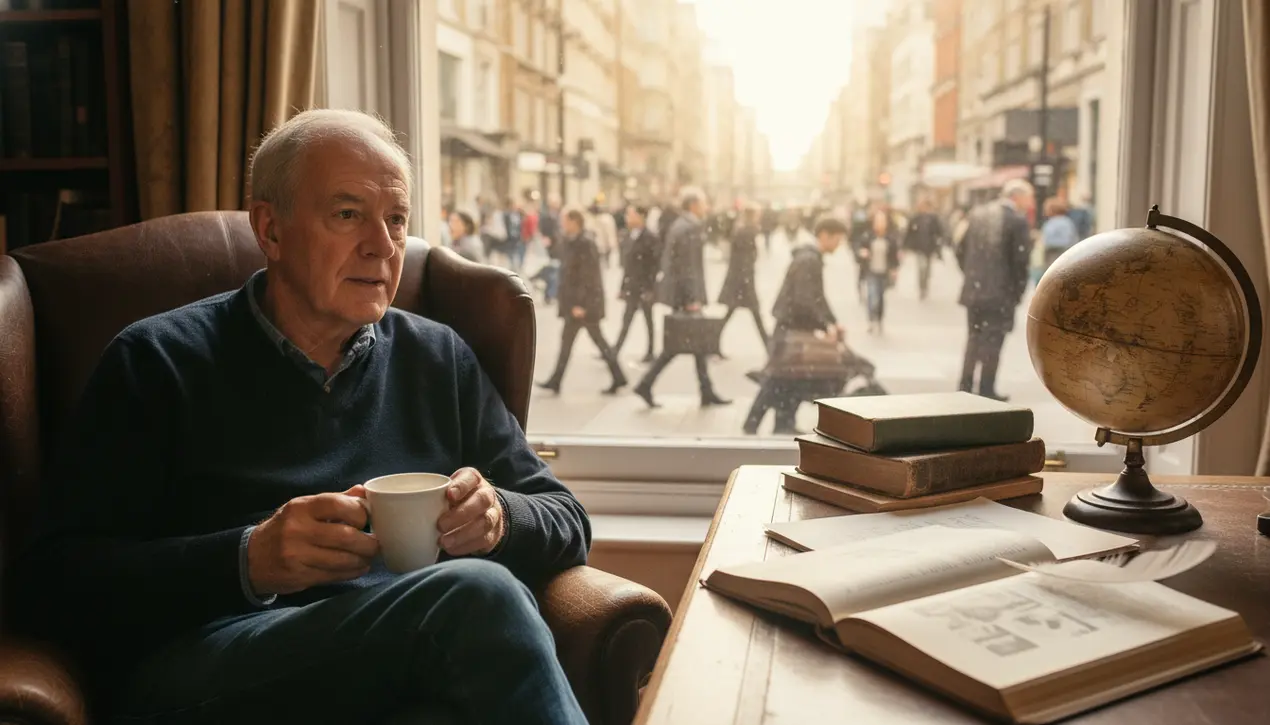- News
- law-courts
- Do you feel lucky? Why acknowledging our own good fortune would make the world a better place | Julian Richer

Otherlaw & courtsLegal Reforms
Do you feel lucky? Why acknowledging our own good fortune would make the world a better place | Julian Richer
LA
Laura Bennett
2 hours ago7 min read2 comments
When you pause to consider the trajectory that brought you to this exact moment—the career you have, the relationships you cherish, the very person you've become—what narrative do you tell yourself? For many, especially those perched atop ladders of their own making, the story is one of relentless hard work, innate talent, and ironclad determination. It’s a comforting tale, this myth of meritocracy, one that places us firmly in the driver's seat of our own destiny.But if we're truly honest with ourselves, how much of that narrative is built upon a foundation of circumstances entirely outside our control? I’ve spent countless hours in conversation with people from all walks of life, listening to the intricate tapestries of their experiences, and a profound pattern emerges: we are often the beneficiaries of a quiet, pervasive luck that we’re reluctant to acknowledge. This isn't merely about the random, lightning-strike fortune of a lottery win, though that is one dramatic form.It’s about the foundational lottery of birth—the family, the nation, the socioeconomic bracket, and the genetic predispositions we are handed without consent. To be born in a stable, prosperous country versus one gripped by conflict; to have parents who could provide not just food and shelter but encouragement and connections; to possess a mind and body free from debilitating illness or trauma—these are not achievements.They are the unearned windfalls that set the stage upon which our efforts can even hope to succeed. The entrepreneur who credits their success solely to eighty-hour work weeks conveniently forgets the small business loan their parents co-signed, the safety net that allowed them to fail without facing destitution, or even the simple luck of being in the right place when a key investor happened to walk by.The cognitive bias is powerful; we over-attribute our successes to our own agency and our failures to external forces. This isn't a call for self-flagellation or a denial of the very real energy and skill we apply.It is, however, an invitation to a radical humility. What would our world look like if more successful people, the ones who shape policy and control capital, genuinely internalized this reality? It would fundamentally reshape our approach to inequality.If luck plays such a significant role, then the staggering accumulation of wealth at the top is not purely a reward for virtue but also a magnification of initial, random advantage. This perspective dismantles the moral justification for vast inequality and builds a compelling case for robust social safety nets, progressive taxation, and investment in public goods like education and healthcare.These are not handouts; they are societal mechanisms for distributing opportunity, for creating more starting lines from which luck can then operate. It’s about engineering a system where a child’s potential isn't so brutally capped by the postal code of their birth.Acknowledging our luck fosters empathy, moving us from a mindset of 'I earned this' to 'I was given this, and thus I have a responsibility. ' It transforms gratitude from a passive feeling into an active driver for creating a fairer, more compassionate society where the roll of the cosmic dice doesn't predetermine one’s entire life. This is the profound, human-centric shift that begins not with policy papers, but with a simple, honest look in the mirror.
#editorial picks news
#luck
#meritocracy
#fairness
#success
#privilege
#social commentary
#philanthropy
Stay Informed. Act Smarter.
Get weekly highlights, major headlines, and expert insights — then put your knowledge to work in our live prediction markets.
Comments
Loading comments...
© 2025 Outpoll Service LTD. All rights reserved.